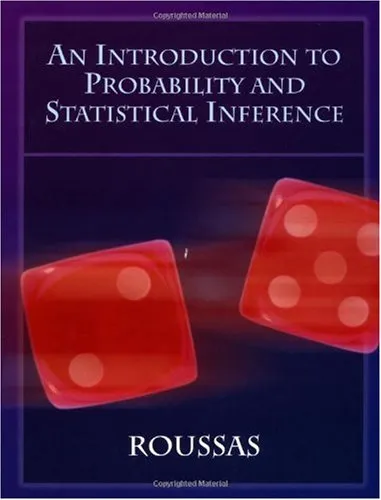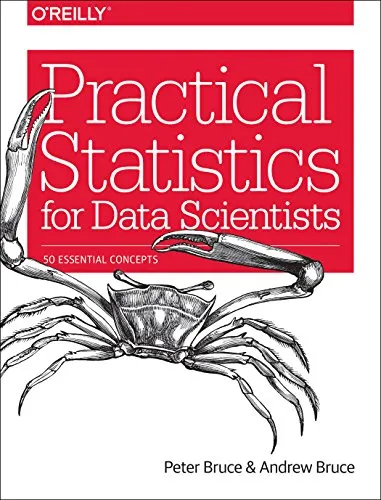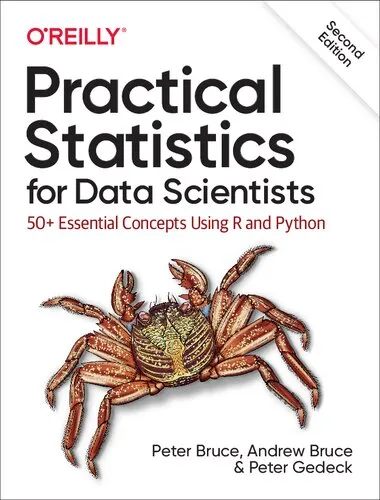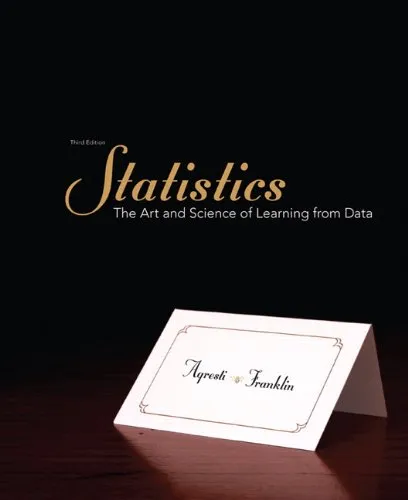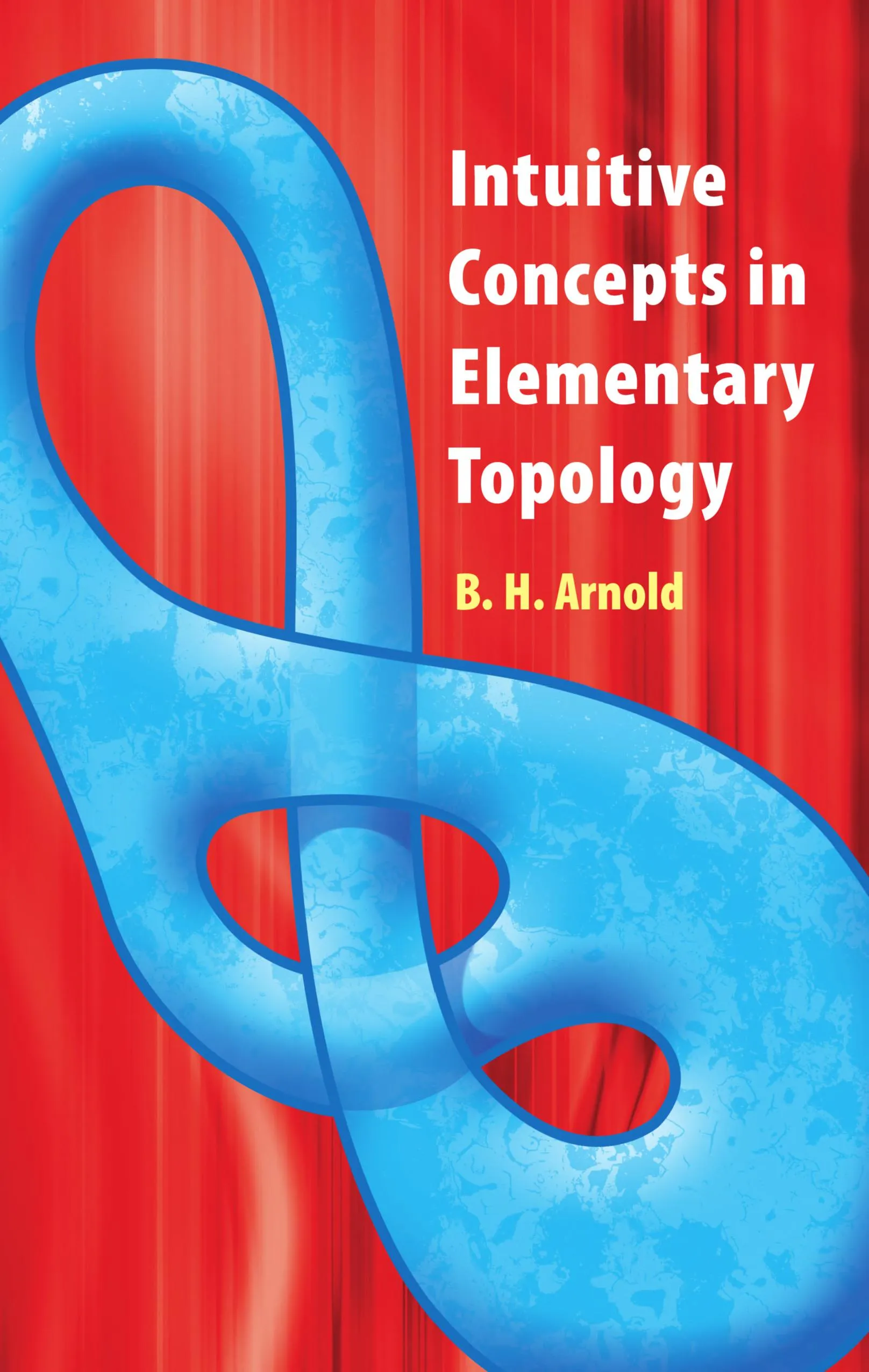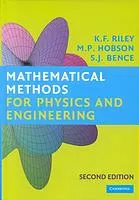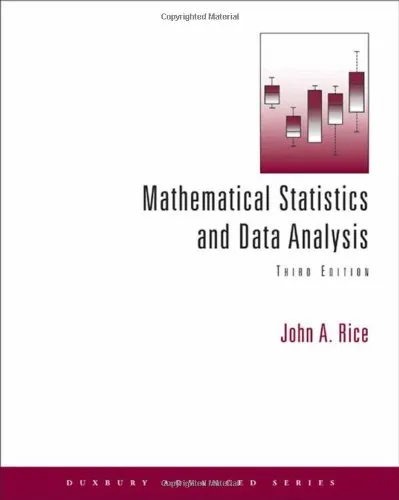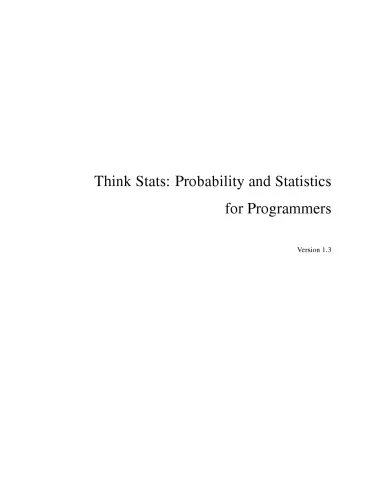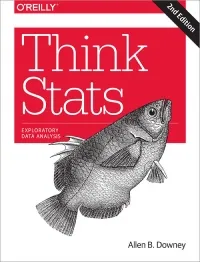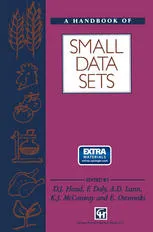An introduction to probability and statistical inference
4.5
Reviews from our users

You Can Ask your questions from this book's AI after Login
Each download or ask from book AI costs 2 points. To earn more free points, please visit the Points Guide Page and complete some valuable actions.Related Refrences:
An Introduction to Probability and Statistical Inference
"An Introduction to Probability and Statistical Inference" by George G. Roussas is a comprehensive guide for readers who wish to explore the foundational concepts of probability theory and statistical inference. This book presents a meticulous balance between theoretical depth and practical applications, making it an ideal resource for students, educators, and professionals alike. With its structured narrative and self-contained approach, the book equips readers with the mathematical tools necessary to understand randomness and use statistics effectively in decision-making processes. Below, we dive deeper into the essence of this acclaimed text.
Detailed Summary of the Book
The book is organized in a logical progression that introduces readers to the basics of probability before transitioning into statistical inference. The initial chapters establish the groundwork by explaining the principles of probability, covering essential topics such as random variables, probability distributions, expectation, variance, and joint distributions. The discussion is enriched through carefully selected examples and illustrative problems, ensuring clarity and practical understanding.
As the narrative advances, readers encounter rigorous details about sampling methods, parameter estimation, hypothesis testing, and confidence intervals. Each concept is explained with its real-world implications, allowing for a seamless transition between theory and application. Moreover, the book introduces advanced topics including Bayesian inference, maximum likelihood estimation, and non-parametric methods, empowering readers to address a diverse range of statistical problems.
Special attention is given to bridging gaps between abstract concepts and empirical analysis. Through these efforts, the text ensures it remains accessible to beginners without sacrificing the depth required by advanced learners. The clarity and structure of the book encourage independent learning while also making it suitable for classroom instruction.
Key Takeaways
- Comprehensive coverage of fundamental probability concepts such as independence, Bayes' theorem, and distributions.
- Detailed explanations of statistical inference techniques, including estimation theory and hypothesis testing.
- Introduction to both classical and Bayesian approaches to probability and statistics.
- Practical examples and exercises that reinforce mathematical concepts with real-world applications.
- A solid foundation for further study in mathematical statistics, data science, and machine learning.
- An inclusive text that balances theoretical exploration with practical insight into solving statistical problems.
Famous Quotes from the Book
Throughout the text, George G. Roussas presents powerful insights alongside mathematical rigor. Some of the notable quotes from the book include:
"Probability is the language through which randomness communicates its secrets to us."
"Statistical inference allows us to make reasoned conclusions in the face of uncertainty, turning data into knowledge."
"Understanding randomness is not merely theoretical—it is essential in a world driven by data and uncertainty."
Why This Book Matters
"An Introduction to Probability and Statistical Inference" is more than just a textbook—it is a cornerstone of statistical education. These days, data-driven decision-making is integral to a broad array of fields, from business to healthcare, engineering, and social sciences. Roussas’ meticulously tailored exposition makes this book a pivotal resource for developing both analytical thinking and problem-solving skills in these domains.
The book’s emphasis on connecting abstract mathematical principles with their tangible real-world applications underscores its significance. It not only implants critical theoretical knowledge but also provides a framework for interpreting and analyzing data, skills that are indispensable in the age of big data and AI.
Additionally, the book employs a pedagogical approach that caters to learners with varying levels of mathematical expertise. Roussas' ability to deconstruct intricate topics into digestible lessons has made this book a popular choice for both self-learners and students in academic settings. Its timeless nature ensures that it continues to serve as a reliable foundation for future explorations in the fields of probability and statistics.
Free Direct Download
You Can Download this book after Login
Accessing books through legal platforms and public libraries not only supports the rights of authors and publishers but also contributes to the sustainability of reading culture. Before downloading, please take a moment to consider these options.
Find this book on other platforms:
WorldCat helps you find books in libraries worldwide.
See ratings, reviews, and discussions on Goodreads.
Find and buy rare or used books on AbeBooks.
1425
بازدید4.5
امتیاز0
نظر98%
رضایتReviews:
4.5
Based on 0 users review
Questions & Answers
Ask questions about this book or help others by answering
No questions yet. Be the first to ask!
